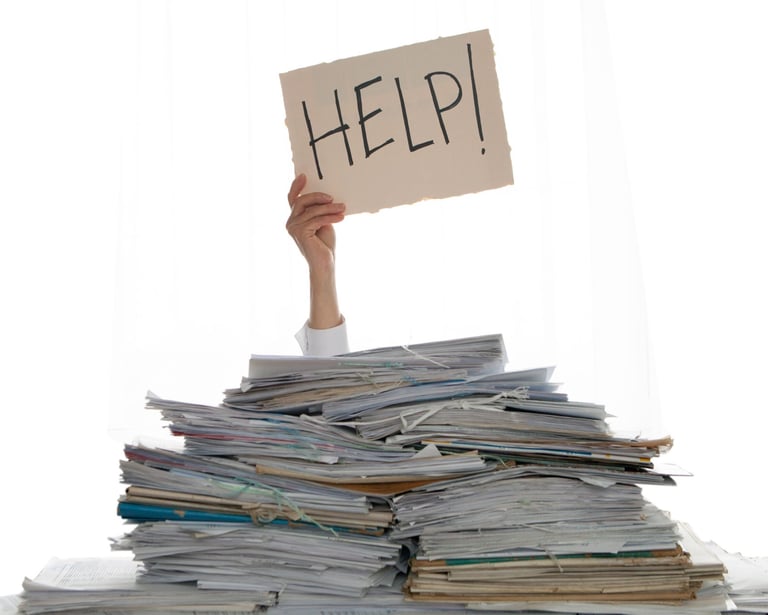Paperwork to Prepare Before Moving to Montreal or Anywhere in Canada
Moving to a new country is exciting, but it comes with plenty of bureaucracy. Canada — and especially Quebec — has its own administrative requirements, which can vary based on your immigration status, intended length of stay, and reason for coming (work, study, tourism, etc.).
Whether you’re arriving for a short stay or planning to settle permanently, preparing the right documents can save you from delays, confusion, and last-minute emergencies. Below is a comprehensive guide, broken down by category, to help you get organized and feel confident ahead of your journey.
1. Immigration & Legal Documents
This is the most critical paperwork category. Without these documents, you may not be allowed entry into Canada, or worse, may face legal issues upon arrival.
Passport: Ensure your passport is valid for at least six months beyond your planned stay. Make physical and digital copies.
Visa or eTA (Electronic Travel Authorization): Depending on your nationality, you will either need a visa or an eTA. Apply well in advance.
Study Permit / Work Permit / Visitor Record: These are essential if you are coming for work or school. Carry printed approval letters and be ready to show them at customs.
Confirmation of Permanent Residence (COPR): If you’re immigrating, this letter is mandatory. It confirms that you’ve been approved for permanent residency.
Letter of Introduction: Issued by IRCC, this is required for those with temporary permits (work/study).
Quebec Acceptance Certificate (CAQ): For international students or temporary workers in Quebec, the CAQ is an additional requirement.
Pro tip: Always carry your immigration documents in your carry-on luggage — never in checked baggage.
2. Financial Documents
Whether you’re a newcomer, international student, or tourist planning a longer stay, financial documentation is often requested by immigration officials, landlords, or financial institutions.
Proof of Funds: Bank statements from the past 3-6 months, showing that you can support yourself during your stay.
Letter from Bank: A formal letter confirming your account balance and history. Preferably in English or French.
Credit History / Credit Report: Especially useful if you’re planning to rent long-term or apply for a Canadian credit card.
Tax Returns / Proof of Income: May be needed if you plan to work, rent, or apply for certain benefits.
Tip: Scan and save PDFs of your financial records on a secure cloud drive.
3. Housing & Accommodation
Before you arrive in Canada, it’s strongly advised to have at least temporary accommodation booked. Some paperwork related to housing might also be required by customs or later, by landlords.
Temporary Housing Proof: Hotel or Airbnb booking confirmation.
Rental Agreements: If you already signed a lease, bring copies of the contract.
Rental References: Letters from previous landlords (translated if needed) can be helpful in securing long-term rentals.
Proof of Employment or Study: Some landlords want to verify your financial stability.
If you’re staying with friends or family, a letter from your host may be needed to confirm your accommodation.
4. Healthcare-Related Documents
You may not be eligible for public healthcare right away, especially in Quebec where there is often a waiting period. Bringing the right documents ensures continuity of care.
Vaccination Records: Especially important if you are registering your children for school or daycare.
Prescriptions and Medical History: Bring recent prescriptions and a medical summary from your doctor.
Travel Insurance: Until you're covered under RAMQ (Quebec Health Insurance), private travel insurance is essential.
RAMQ Application (if applicable): Forms and supporting documents for your Quebec health card application.
For chronic conditions, request an official letter from your doctor detailing your condition and medication needs.
5. Educational & Professional Documents
Whether you plan to study or work in Canada, your academic and professional credentials must be ready and in many cases translated.
Diplomas and Transcripts: Official, sealed copies preferred. Translation into French or English may be required.
Resume / CV: Tailored to Quebec’s format and job market.
Reference Letters: From previous employers or professors. These should be dated, signed, and preferably on official letterhead.
Professional Certifications: If you’re in a regulated field (e.g., health, engineering), bring certifications and licensure documents.
Portfolio (if applicable): Artists, designers, and creatives should bring a physical and digital portfolio.
If you’re applying for jobs, also prepare a motivation letter and keep digital versions of everything ready.
6. Family & Personal Documents
Bringing dependents or planning to access services for your family? These documents will be essential.
Birth Certificates: For you and any dependents.
Marriage Certificate / Divorce Decree: May be needed for tax or health benefits.
Custody Documents: If traveling with children without the other parent, bring notarized consent letters.
Adoption Papers: If applicable.
School Records: For enrolling children in Canadian schools.
You may also want to bring copies of religious documents, wills, or power of attorney documents if applicable.
7. Transportation & Driving
Want to drive in Canada? Quebec has specific rules depending on how long you stay and where you’re from.
Driver’s License: Bring your original license. Depending on your country, you may be able to exchange it for a Quebec license.
International Driving Permit (IDP): Recommended for temporary stays.
Driving Record / History: Some insurance companies ask for this when quoting your first Canadian car insurance policy.
Vehicle Papers: If importing a vehicle, you’ll need registration, insurance, and customs documents.
Make sure to research SAAQ (Quebec’s licensing authority) requirements if you intend to drive.
8. Tech, Communication & Digital Access
Managing your digital life is also part of paperwork prep — especially when it comes to accessibility and accounts.
SIM Card / Phone Unlocking Code: If you’re bringing your own device.
Email Backups / Cloud Storage Access: Store copies of all documents in secure cloud platforms like Google Drive or Dropbox.
Device Passwords / 2FA Codes: Especially important for banking apps and secure logins.
Printed Emergency Contacts: In case you lose access to your phone or email.
9. Extras Worth Having
Sometimes small things make a big difference.
Passport Photos: Canada loves asking for 2x2” or 35mm photos. Bring 6–10 extras.
Pen Drive / USB Stick: For sharing documents when internet access is limited.
Certified Translations: Any document not in English or French may need to be officially translated.
Notarized Copies: Especially for legal or identity-related paperwork.
Final Tips
📂 Organize your documents in categories: Use folders or accordion files labeled clearly.
☁️ Keep cloud backups of everything: Use secure platforms and enable two-factor authentication.
🕒 Start early: Some documents can take weeks or even months to obtain or translate.
🌐 Check official sources: Always refer to Canada.ca, Immigration Quebec, or the Government of Quebec websites for the most up-to-date requirements.


